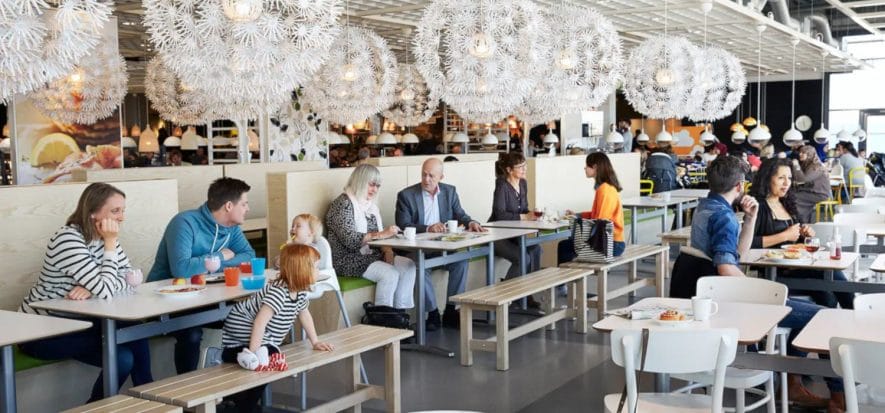Ikea, the Swedish furniture giant announced it plans on pushing the vegan options at its restaurants. Moreover: it wants to bring its clients to like plant-based products more than others. On the same line is Coimbra University, which will eliminate bovine meat options from its cafeterias starting from January 2020. Similar news, braking days from one another in different corners of the world. Uniting the two entities is the ethical ambition of the matter: they believe that, by doing the previously mentioned activities, they are doing the world a favor. But the environmental impact of food consumption, as pointed out by the in-depth analysis of The Vision (two years ago by now, but clearly not advertised enough), isn’t so simple. Eliminating animal products isn’t necessarily a sign of sustainability.
Ikea’s idea
The preparation of a new vegan variant to the classic Swedish meatball is only the first step of Ikea’s vegan strategy. Michael La Cour, managing director of Ikea Food (680 million clients per year, 2.2 billion revenue), explained to Food Navigator how the group’s goal is to bring the quota of vegan products to be 20% of the total menu by 2022. In order to do so, Ikea Food will leverage prices, so that vegetable-based plates will “have a better appeal on customers”. The objective is not just to satisfy the needs of vegan clients: “We want to get to the carnivore clients – he says – and convert them to the new product”.
Coimbra University’s Solution
The university’s direct in person, on the other hand, announced the mentioned decision of the Portuguese school. As reported by local news sources, Gonçalo Santos, secretery general of the association representing Portugal’s tanneries (APIC), is mind-blown: “There are many ways to reduce emissions. We are open to creating a leather kit for students that is so durable that it can be used by themselves, their children, and their children’s children.
The matter’s points
The world’s demand of quinoa has grown so large that large portions of Bolivia have become monoculture, while in Perú the food type has become too expensive for the local population’s purchasing power. At the same time, to satisfy the cashew export volumes, Vietnamese farmers are utilizing labor that, according to the Human Rights Watch organization, fall into slavery. The booming of the almonds’ market is causing a disaster for California’s water supplies. The displacement of large portions of the public towards a vegan or vegetarian diet has symmetrically caused the explosion of alternative foods’ consumption. As reported by The Vision, this movement has had repercussions over the natural balance that can be defined as anything but ethical. Recently, Vanity Fair was poking holes in the “strong theories” onto which the vegan-based trend was based. Now it’s the time to ask ourselves whether the diet really does help the planet, or if many just don’t want to see the truth.
Picture from Ikea.com











